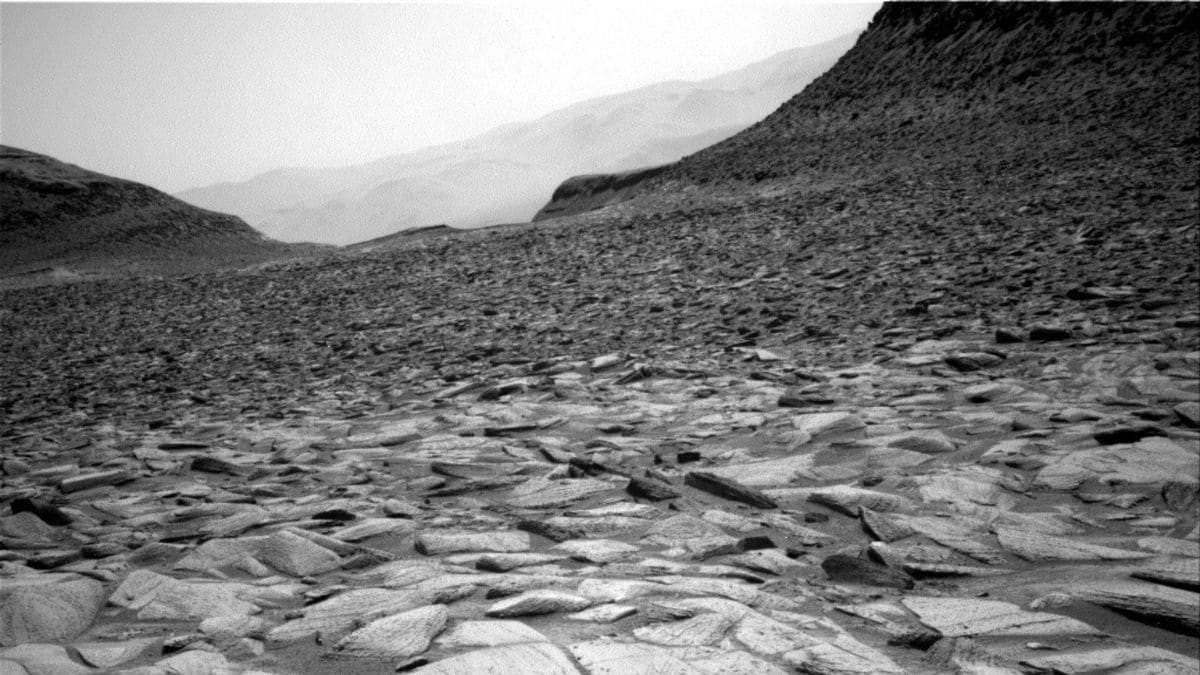The Curiosity rover, operated by NASA, has been navigating the northern end of Texoli Butte on Mars, where it has been surveying diverse sedimentary formations, according to sources. Steep Martian buttes and rocky surfaces have offered detailed glimpses into ancient sedimentary layers, providing valuable data on Mars' geological history. While these terrains provide fascinating insights, reports indicate that the team faced challenges when the rover's recent drive had to stop earlier than planned, affecting subsequent activities.
The mission's recent drive was conducted in a guarded mode to ensure navigation through complex terrains. However, the drive was halted during the guarded segment, preventing the rover from completing its planned imaging of the area around its wheels. According to sources, this limitation meant that the rover did not meet the Slip Risk Assessment Process (SRAP) criteria, temporarily halting the use of its robotic arm for close-contact scientific analysis. Instead, the team redirected efforts toward remote sensing tasks.
Scientific Investigations in Focus
Reports highlight that targeted science activities were conducted on Martian Sol 4396, with the rover examining a dark vein within the bedrock, named “Avalon.” This was followed by the acquisition of long-range imaging mosaics to document the distant boxwork structures and capture a view of Mount Sharp from the current perspective. Mastcam mosaics were also planned to analyze sedimentary structures, fractures, and stratigraphic layers.
The rover covered a 50-metre stretch during its drive and is preparing for further imaging to facilitate the next phase of exploration. On Sol 4397, Curiosity is reported to be conducting autonomous ChemCam observations and environmental monitoring tasks, including dust-devil tracking and atmospheric dust analysis using Navcam.
Planning Ahead for the Holidays
Long-term planning efforts are underway for the rover's activities over the December holidays, according to reports. The rover's ongoing exploration continues to yield vital scientific insights while facing the logistical challenges of operating in a distant and rugged environment.


